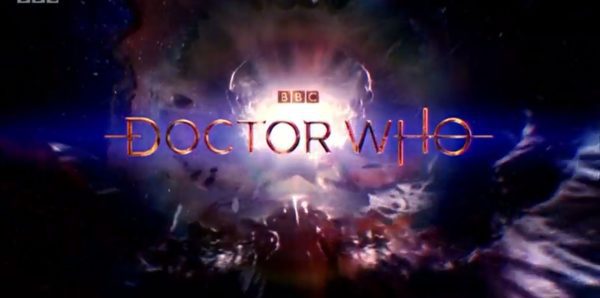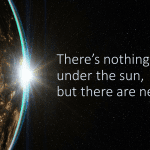The second episode of this season of Doctor Who made very clear that we’re in the same universe with the same Doctor, regenerated. There were a lot of references to the classic series, from the opening credits to the very end. Sure, it featured a space race that the Doctor found herself and her companions inadvertently in the middle of. That’s happened before on the show, more than once. But this time there was more of a self aware approach to the subject matter, continuing a theme from last week by introducing behind it all the same species, the Stenza, and their propensity to kill and damage in the course of organizing intergalactic competitions. Significant social commentary accompanies that theme every step of the way, once again very much in keeping with the Doctor’s speeches from the First onward.
 After being scooped up separately by two different ships, the Doctor and her team are reunited on a planet we’re told has no actual name, just a symbol that basically means desolation. As the episode continues, we learn that scientist had their families held hostage, and the threat to them was used to force them to lend their minds to the project of turning the planet into a thoroughly cruel and hostile environment. Their words – “we had no choice” – were an attempt at apology, but it is one that we’ve heard throughout history from those who worked for genocidal regimes because of threats to them or their family.
After being scooped up separately by two different ships, the Doctor and her team are reunited on a planet we’re told has no actual name, just a symbol that basically means desolation. As the episode continues, we learn that scientist had their families held hostage, and the threat to them was used to force them to lend their minds to the project of turning the planet into a thoroughly cruel and hostile environment. Their words – “we had no choice” – were an attempt at apology, but it is one that we’ve heard throughout history from those who worked for genocidal regimes because of threats to them or their family.
The episode actually digs deeper, because one of the last two of the thousands of entrants in the race tells how she left her family in order to participate in the race in the hope of winning the prize money and being able to rescue her family. This sort of participation in an unjust system is one that we notice less frequently. But when we idolize people who get ahead through a process that we’ve artificially made cutthroat – whether an educational system, limited employment, even sports or anything else where a few are given the chance to succeed in a system designed to severely damage those who don’t make the cut – we are in effect doing the same thing.
I loved that the money was indicated to be a large sum, which was then broken down into its subcomponents, but which is ultimately observed to be completely meaningless without an exchange rate. And so even while the race’s organizer and final contestants speak of “the biggest ever prize, biggest ever risk” and the “ultimate test,” we are confronted with the fact that the system that makes the money valuable, the prize worth entangling oneself in an unjust process for, is itself artificial, contrived, and only has the value participants in the process give to it.
Doctor Who can be really profound at times in its exposing of the nature of capitalism and of human society more generally. This is one of them.
It was a nice touch that the aliens, who appeared human, had never heard of “humans beings.”
It turns out that the location of the prize is a place called the “Ghost Monument,” which was named by ancient settlers and appears once every thousand cycles. When we are shown what it looks like, it is the TARDIS. And so of course, the Doctor and team become participants in the race, and persuade a selfish competitor to learn a lesson (about which I’ve included a number of quotes below).
I loved the reference to Venusian Akido, which was introduced in the era of the Third Doctor. The Doctor says she is a Tenth Level Pacifist, and adds, “very clever, those Venusian nuns.” I’m pretty sure in the past, he said monks. The Doctor’s overall pacifism is a perpetual theme of the series and emphasized here (again, see some of my favorite quotes from the episode below, some of which relate to this, with links to some information about exceptions).
Another great feature was the introduction of mysteries related to the Doctor’s past – something I hoped might be in view as we were given hints that the Doctor’s history might indeed have been longer and more mysterious than what we have seen on the air. Creatures that can see things within the Doctor, her fears that even she cannot, refer to “The timeless child. The outcast abandoned and unknown.” Knowing Doctor Who, this is inserted here with a view to exploring it further at some later point.
Some of my favorite quotes from the episode (and some vague allusions where I didn’t manage to jot down the precise wording) include:
“The final planet” – “How can a planet be final?”
“This ship is old school, I’m good at old school”
“Welcome to what I presume is your first alien planet. Don’t touch anything.”
Borrowed sunglasses either from Audrey Hepburn or Pythagoras.
Medipods inserted universal translators. If I had my TARDIS you wouldn’t need them.
“She’s our best hope or only option, depending on your politics.”
“We all need other people, mate.”
We start alone and that’s how we end. His mother taught him never to trust anyone. To which the Doctor replies: “Your mum was wrong. We’re stronger together.”
The Doctor says, “Guns, never use ‘em.” That is not strictly true, although it is definitely the Doctor’s principle.
“You can’t outthink bullets.” “I’ve been doing it my whole life.”
And after using a different part of a defunct robot than the weapon Ryan chose, in order to set off an EMP and deactivate them all, she says, “See, brains beat bullets.”
You sure about that? Nope – come on!
“Big locked door. I love a big locked door.”
Some of us feel a duty to help others in need.
Don’t ever take them for granted.
“Where are those people now? Why are there so few signs of life?”
I loved the way the Doctor encouraged Ryan so patiently and effectively when he needed to climb the ladder.
When the TARDIS materializes, the Doctor says, “Come to daddy, I mean mummy…” When she says she has lost her key, the TARDIS opens the door and lets the Doctor in. That’s more than just a plot device, and one that has been used before. The TARDIS recognizing this female Doctor is an effective way of inviting viewers to do the same, and that it is the (always referred to as female) TARDIS doing this makes it so much more perfect.
The Doctor notes even when viewing the exterior that the TARDIS has “done herself up.” And surveying the inside we get a really classic line – “You’ve redecorated…” followed by a really long pause, as we expect the same response that has been given on each previous occasion, only to hear this time: “I really like it.” With its newness and yet harking back to the classic TARDIS rondules, it does seem to bring past and future together.
The renovated TARDIS console includes an hourglass…and a biscuit dispenser.
The new music and title sequence at the beginning and the end symbolize the show well not just in its present iteration but throughout its long history: it has always featured a weaving of old and new together.
I loved the episode’s ethical message, its continuation of the challenge to competition that trivializes life in the pursuit of entertainment, wealth, or anything else. I enjoyed it immensely, and I am surprised by just how quickly the new Doctor, the new opening credits, the new companions, with a new showrunner, simply feels like Doctor Who. Despite the fact that Doctor Who has constantly reinvented itself, feeling at once fresh and classic is still a challenge – perhaps even more so.
Did you enjoy the episode as much as I did? What were your favorite moments?














